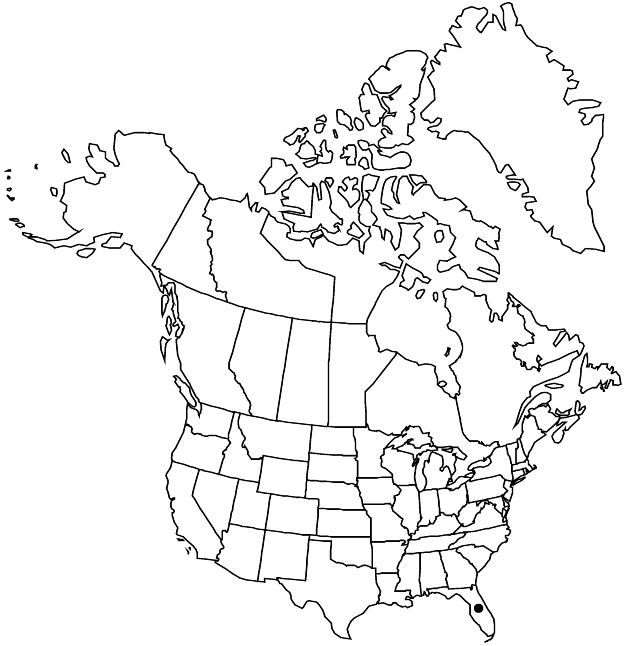Argythamnia argothamnoides
Bull. Torrey Bot. Club 80: 423. 1953.
Herbs or shrubs, perennial, monoecious, to 5 dm. Stems erect, densely to sparsely hairy, hairs malpighiaceous. Leaves: stipules usually persistent, subulate, 0.6–0.8 mm, margins not glandular; petiole 1–5 mm; blade elliptic, ovate to obovate, 1.5–6 × 0.6–3.3 cm, margins minutely serrulate to serrate, without glands, surfaces densely to sparsely hairy, hairs malpighiaceous. Inflorescences bisexual, 0.8–1 cm; bracts ovate-elliptic, 1–1.7 mm, margins without glands. Flowers without pink dye when wetted. Staminate flowers: sepals lanceolate, 2.5–3 × 0.5–0.7 mm; petals elliptic, 2.1–2.6 × 0.9 mm, adnate to androphore; nectary glands ovate, 0.3–0.4 × 0.2–0.4 mm, adnate to androphore, usually glabrous, rarely pubescent; stamens 10, staminodes 3–5, sometimes minute, usually pubescent, rarely glabrous. Pistillate flowers: sepals lanceolate, 3.3–4 × 1–1.9 mm, without glands; petals 5, elliptic, 1.5–1.8 × 0.6–1 mm; nectary glands oblate, 0.2–0.3 × 0.3–0.4 mm, glabrous; ovary hispidulous; styles 1–1.4 mm, hispidulous to pilose; stigmas terete or slightly flattened. Capsules 3–5 mm, hispidulous. Seeds 1.5–3 mm, with shallow depressions, striate or reticulate.
Phenology: Flowering year-round.
Habitat: Open cactus hammocks, pinelands, mixed forests, rocky and sandy soils, limestone.
Elevation: 0–10 m.
Distribution

Fla., West Indies, n South America (Colombia), n South America (Venezuela)
Discussion
Most floras have treated Argythamnia argothamnoides and A. blodgettii as separate species, with the former found in northern South America and adjacent Caribbean islands and the latter in Florida. However, the two are morphologically indistinguishable and treated here as a single species.
In the flora area, Argythamnia argothamnoides is found only in Miami-Dade and Monroe counties.
Selected References
None.